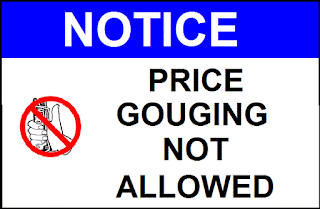 |
| Click to Learn More |
On May 26, 2017, Maryland became the first state to ban pharmaceutical “price gouging” on certain prescription drugs made available for sale in the state. Amidst overwhelming bipartisan support from both the House of Delegates (137-2-2) and the State Senate (38-7-2), Maryland Governor Larry Hogan allowed House Bill 631, also known as the “Prohibition Against Price Gouging for Essential Off-Patent or Generic Drugs” (“Act”), to become law without his signature.
The Act, which takes effect on October 1, 2017, has two key provisions: (1) a prohibition on price gouging on certain drugs and (2) the authorization of administrative and legal action by the Maryland Attorney General (“MD AG”) to enforce this new law.
The first key provision of the Act (to be codified in Maryland Code Health-General as Section 2-802) prohibits manufacturers and wholesale distributors from engaging in “price gouging” when selling “essential off-patent or generic drug[s].” An “essential off-patent or generic drug” is any drug or drug-device combination that:
- is not subject to exclusive marketing rights,
- is listed on the most recent World Health Organization Model List of Essential Medicines or indicated by the Maryland Secretary of Health and Mental Hygiene,
- is actively manufactured and marketed in the United States by fewer than three manufacturers, and
- is made available for sale in Maryland
According to the Act, “price gouging” is an “unconscionable increase in the price of a prescription drug.” An “unconscionable increase” is defined as an increase that is “excessive and not justified” by costs associated with production or access to the drug for public health promotion and results in prescribed consumers lacking “meaningful choice” due to personal necessity and inadequate competition in the market.
The second key provision of the Act (Section 2-803) authorizes the Maryland Medicaid Program to notify the MD AG when (1) over the previous one-year period, a 50 percent increase in either the wholesale acquisition cost (“WAC”) or price paid by the Maryland Medicaid Program for the drug occurs and (2) the WAC for either a “full course of treatment” or a 30-day supply exceeds $80.
Under this provision, the MD AG also may compel a potential justification disclosure statement from the manufacturer of the drug identified by the Maryland Medicaid Program.[9] If requested by the MD AG, the manufacturer has 45 days to provide a statement that includes an itemized list of production costs and the potential justification for the drug price increase.
In addition, the MD AG may compel a manufacturer or wholesale distributor to produce any records or documents relevant to a determination of whether the price increase violates the first provision of the Act that prohibits price gouging.
[Source]
